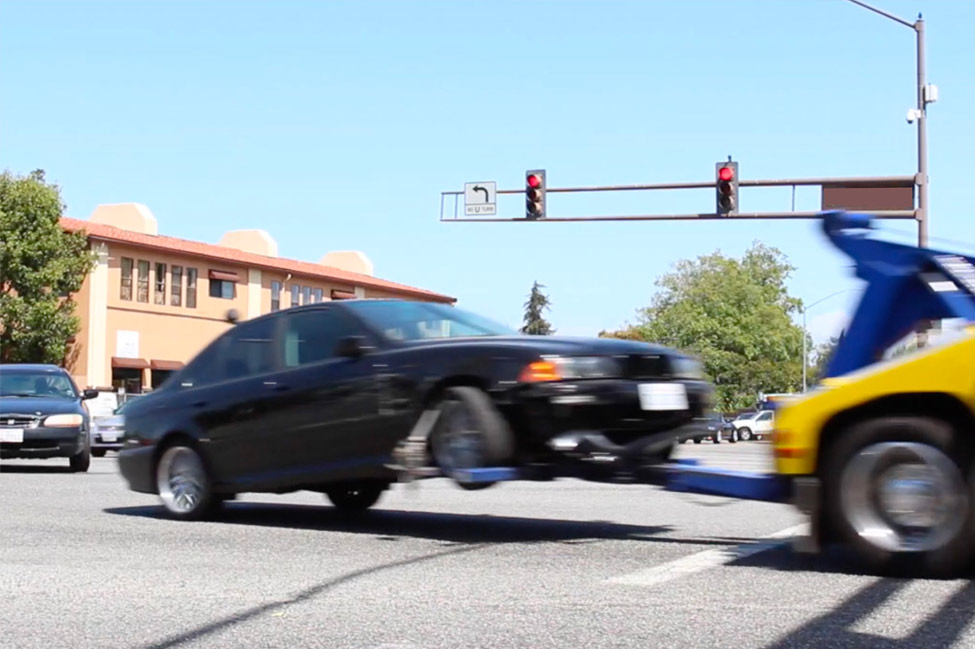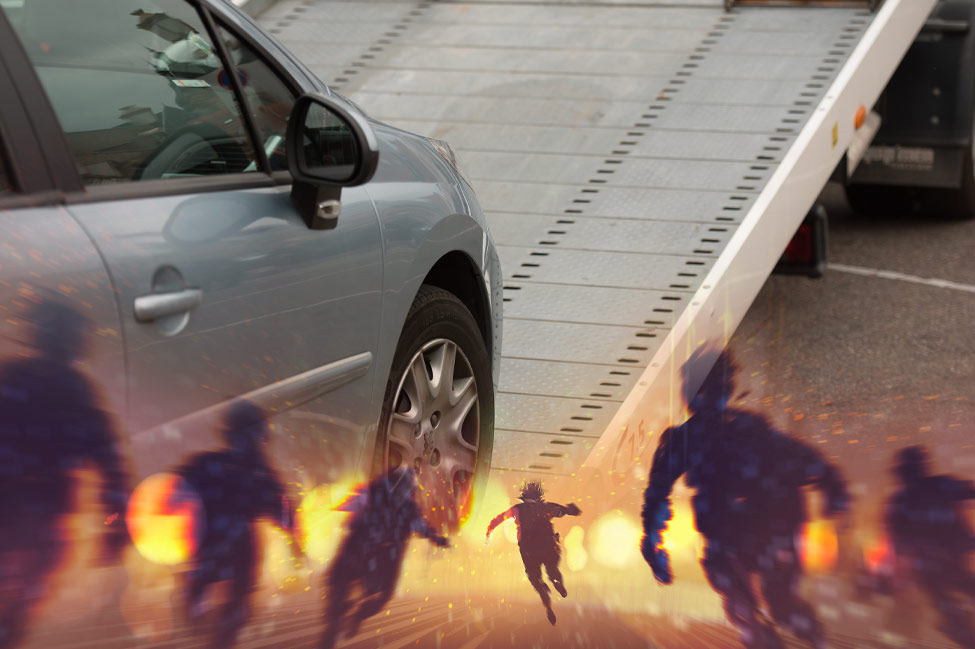Geico Motor Club has a new policy—they pay for gas. But don’t get too excited, it’s not what you think. They’re new policy requires towers to subsidize this service to their customers.
Up until a few months ago, if one of Geico’s insured ran out of gas, they would issue a purchase order for the service and the person receiving the gas would be required to pay for the two gallons the towing company brought out—now Geico pays.
So on the face this new policy sounds like a good deal, no longer will towers be required to extract payment for the gas—but wait there’s a twist. Instead of paying the dollar amount ($7 or $8) the towing company received prior to this change, Geico’s only paying for $5 worth of gas.
Now you might think…so what’s the big deal? Why don’t you just bring out the same 2 gallons of gas you normally would and require that the customer pay the balance? The “Field Rep” answer—”The customer is covered in full.”
This means you can’t ask that they pay any overage amount or you’ll be operating outside the boundaries of your contract.
But what about your profit?
Towing services are no different than any other business in that they must buy low and sell high to survive. You buy batteries from a distributor and mark them up for sale. You buy labor from your employees and sell it at a premium. And you buy gas at pump prices for the express purpose of marking it up and selling it to those who forgot to stop. All this is done to keep the lights on and the trucks rolling. If you lower your prices in any area you’re eating into your profit.
So what do you do?
There’s a couple of ways you could go about solving this problem. To comply with Geico’s new policy you must choose one of two options. Option one: require all your trucks to carry two gas cans, one with 2 gallons of gas for regular customers and a second with $5 dollars-worth of gas…for Geico customers. Of course you’ll have to purchase new cans and your drivers will need to keep a close eye on gas prices and adjust the level in the Geico-can as pump-prices fluctuate.
Or you could go with option 2.
Option two: Provide $5 worth of gas with the profit built into the price. In other words provide just enough gas to get the customer going while maintaining your previous profitability.
While this may seem like a petty solution to a trivial problem it’s not. Don’t slide down that slippery slope, your aim is to slowly increase profitability not move the other way. The clubs already limit how much money you make per call— are they now able to require that you subsidize benefits to their customers?






Hi Don. I appreciate your comments and literature. I have one of your books and will be buying more soon. Have you ever given thought to using a pick up truck and a goose neck trailer for Motor clubs?
On the face that sounds like a money-saving way of servicing the slum sector of the towing industry but be careful. Motor clubs pay Happy Meal rates but expect Filet mignon service. To begin with your contract might include some sort of stipulation that prevents the use of non-commercial vehicles. They may not want a contractor representing them in a “less-than-professional” manner and as soon as they find out they’ll search for a replacement. Secondly, many towers use motor clubs as a transitional method to grow their businesses, a “gateway drug” if you will. (The unfortunate thing is most of us can’t get off once we’re hooked) They use motor clubs to be visible and to build a customer base. If you pull up in a pickup truck with a goose neck while your competitors are using rollbacks you’re not doing yourself any favors. Customers WILL remember you but opt to call someone with better equipment. It’s unfortunate but people judge a book by its cover and if you are less than professional they’ll choose someone else.
Thanks. Stimulating answer. A pick up truck and trailer can hardly be called “non-commercial” A properly equipped pick up truck and trailer can look better and look more professional than a lot of rollbacks. ( take a look at what twobittowsandiego.com has been doing for over 20 years. Yelp reviews. http://www.yelp.com/biz/two-bit-tow-san-diego. Is a rollback better equipment? I don’t think so. Have you seen the latest trailer technology? Let’s see, the average flat bed tow truck has a loading angle of 11 degrees. The average hydraulic tilting trailer has 7 to 3 degree loading angle, which one is best for the average transportation job? The Trailer of course. Have you seen the air bag suspension on this trailers? https://www.youtube.com/watch?v=F_rOV24qfUQ https://www.youtube.com/watch?v=nI2HzgmkjoY https://www.youtube.com/watch?v=lkkAzgyvo5w WHEN WAS THE LAST TIME YOU SAW A FLAT BED TOW TRUCK DO WHAT THIS TRAILERS CAN DO? NEVER!. A FLAT BED TRUCK CANNOT DO THIS.
please don’t take it the wrong way. Flat bed tow truck were junk until the beginning of 1990, so with trailers. Today’s trailers are excellent pieces of equipment. I’ve been running some numbers and it’s eye opening. I think that motor clubs will change their mind about using trailers to service their customers soon.
Noe
I took a look at those videos and you’re right those load angles are really low. And if you’re strictly transporting rather than towing around town, it might be much more economical, if the price is right. But I didn’t see anything that addressed the stability the bed would need should the operator arrive at a vehicle that might need to be winched out of a ditch prior to being loaded. And modern car carriers/ rollbacks have the ability to tow one on the bed and one on the wheel lift. So these trailers have their limitations, I guess like everything else. But the biggest reason I wouldn’t employ one in my fleet unless I was using it strictly for transporting higher end cars, is the image.
You know how on a snow day everyone calls for a tow truck? That’s because, first they’re stuck and second, they believe that tow trucks have the ability to hover above the white stuff. They believe tow trucks can move in heavy snow just as easy as when there’s no snow. And they expect you to be there quick too. Of course, our trucks weigh more and the dual wheels provide more stability and traction but we can slide off the road just as easily as everyone else. So…I want my customers to continue to see my business as different, better, professional. And if I’m driving the same truck their next door neighbor has and pulling a trailer behind it…well that just doesn’t instill confidence.
I hope you get my point. I’m not saying that trailers don’t have their place, transporting is great work if you can get it, but replacing a rollback with a trailer is limiting.
Thanks
Don